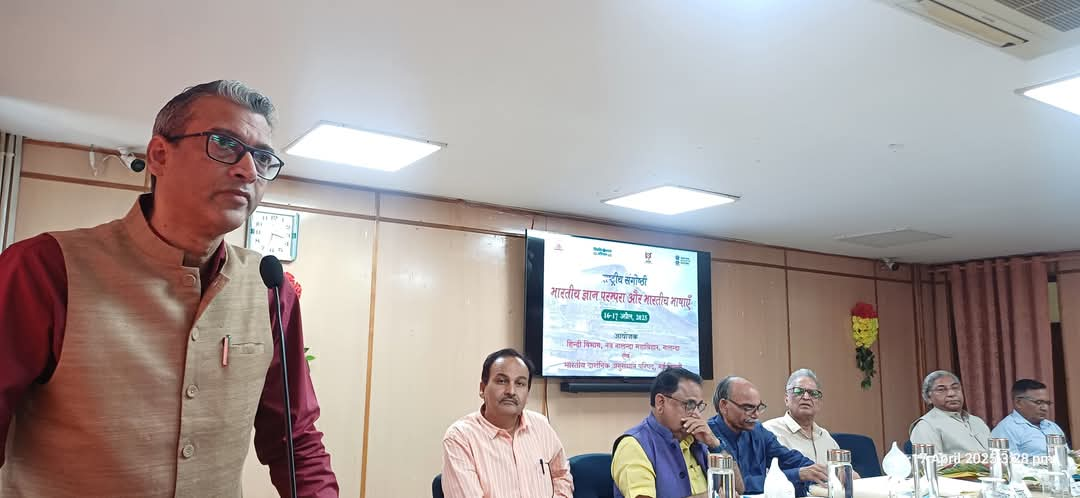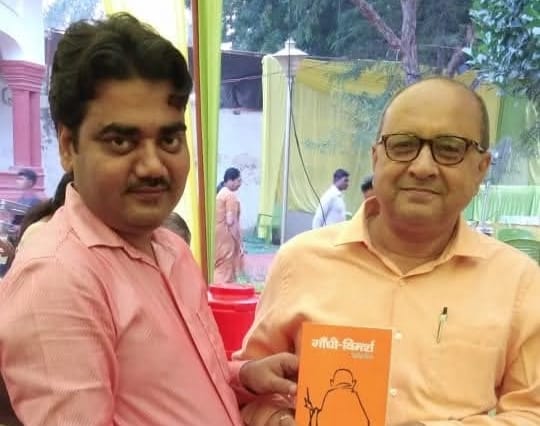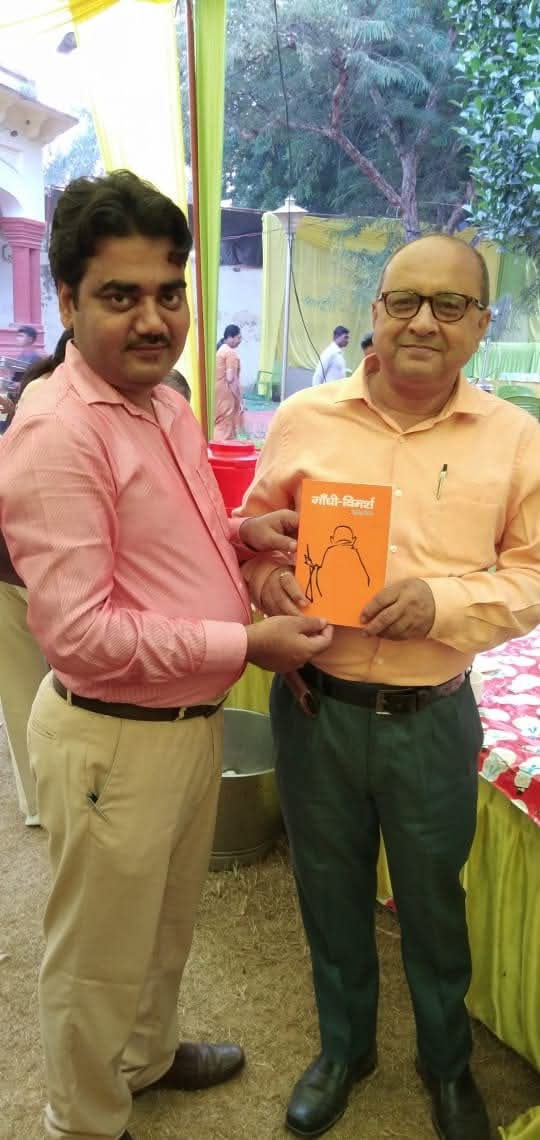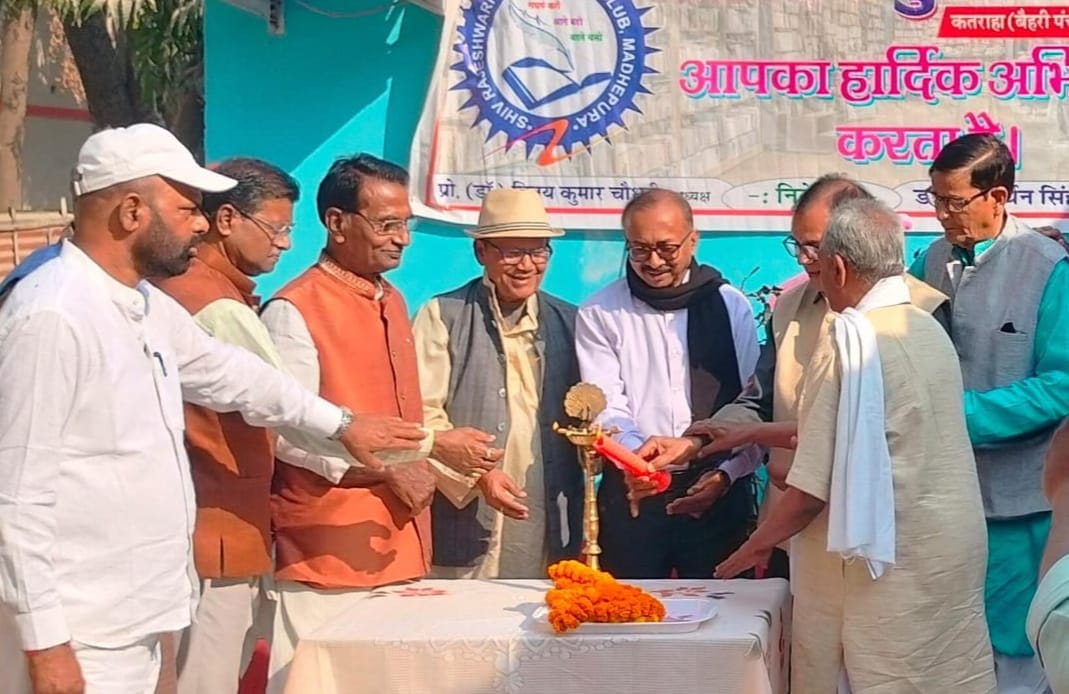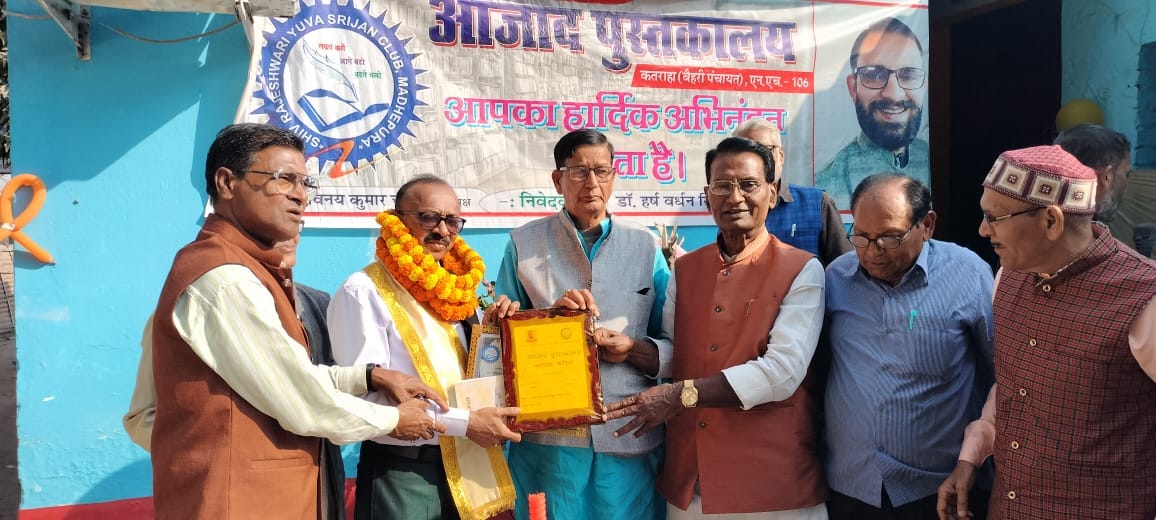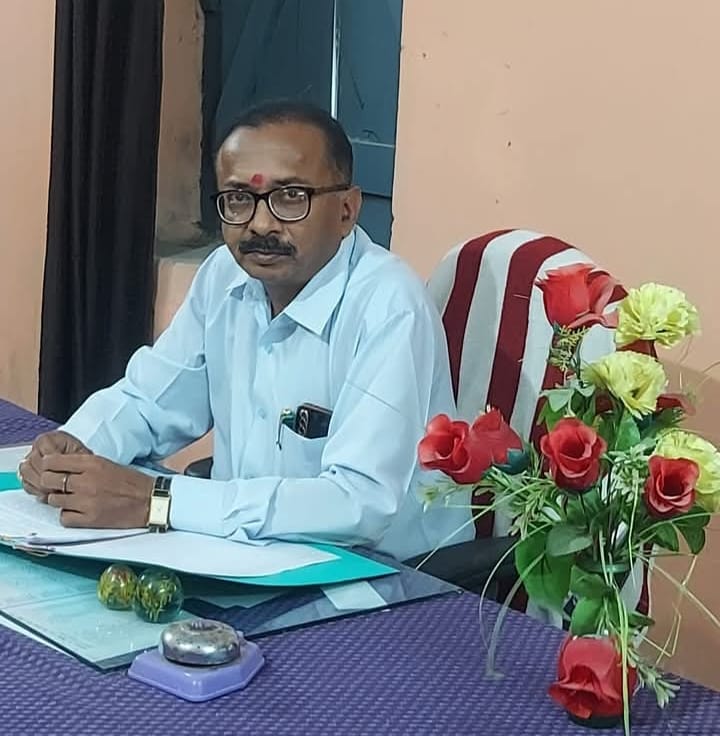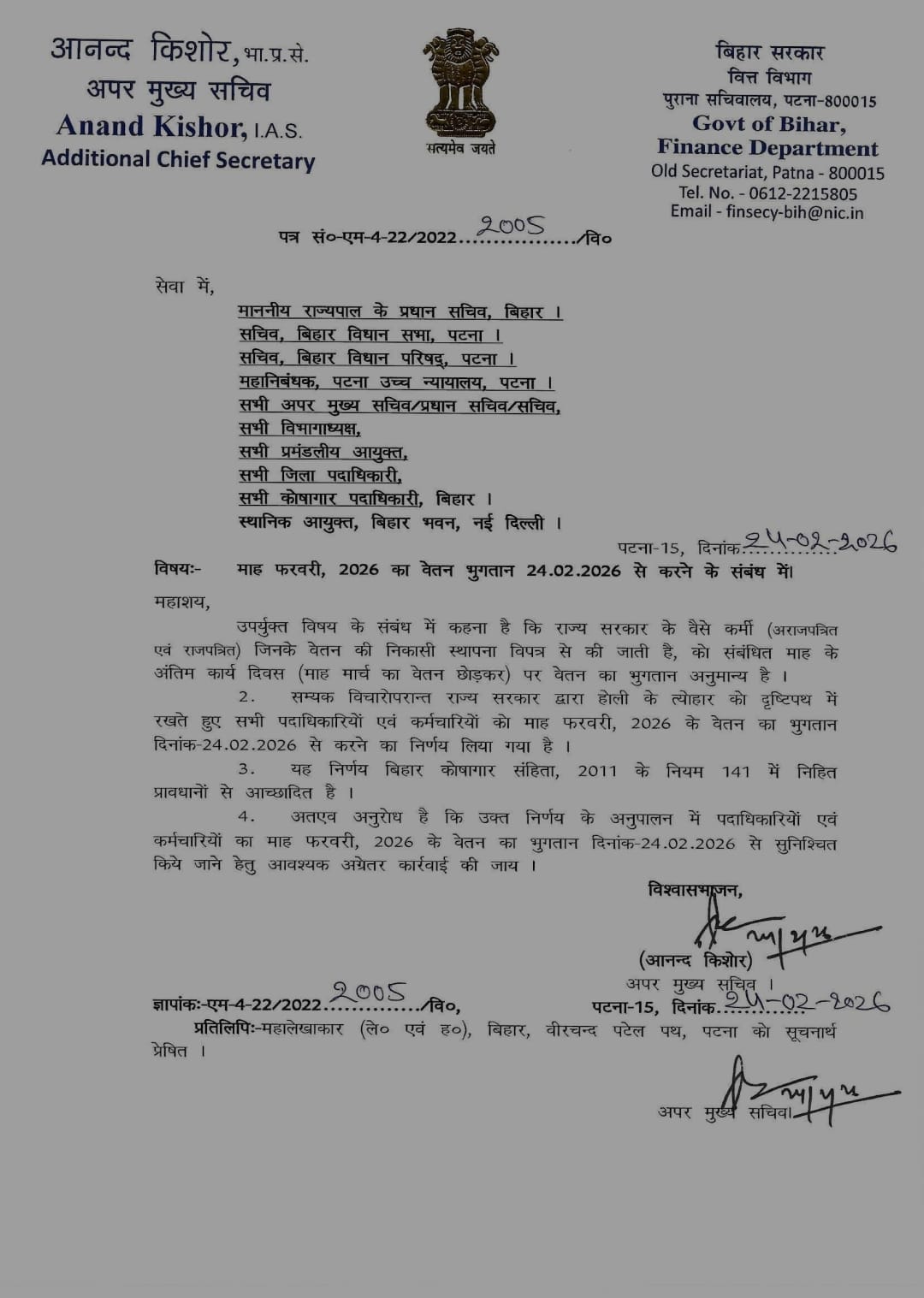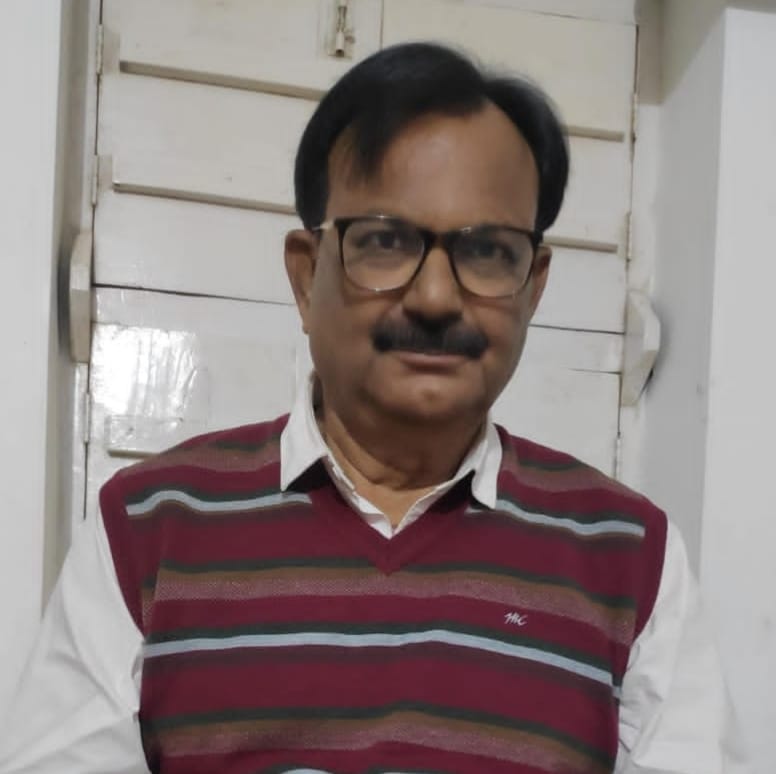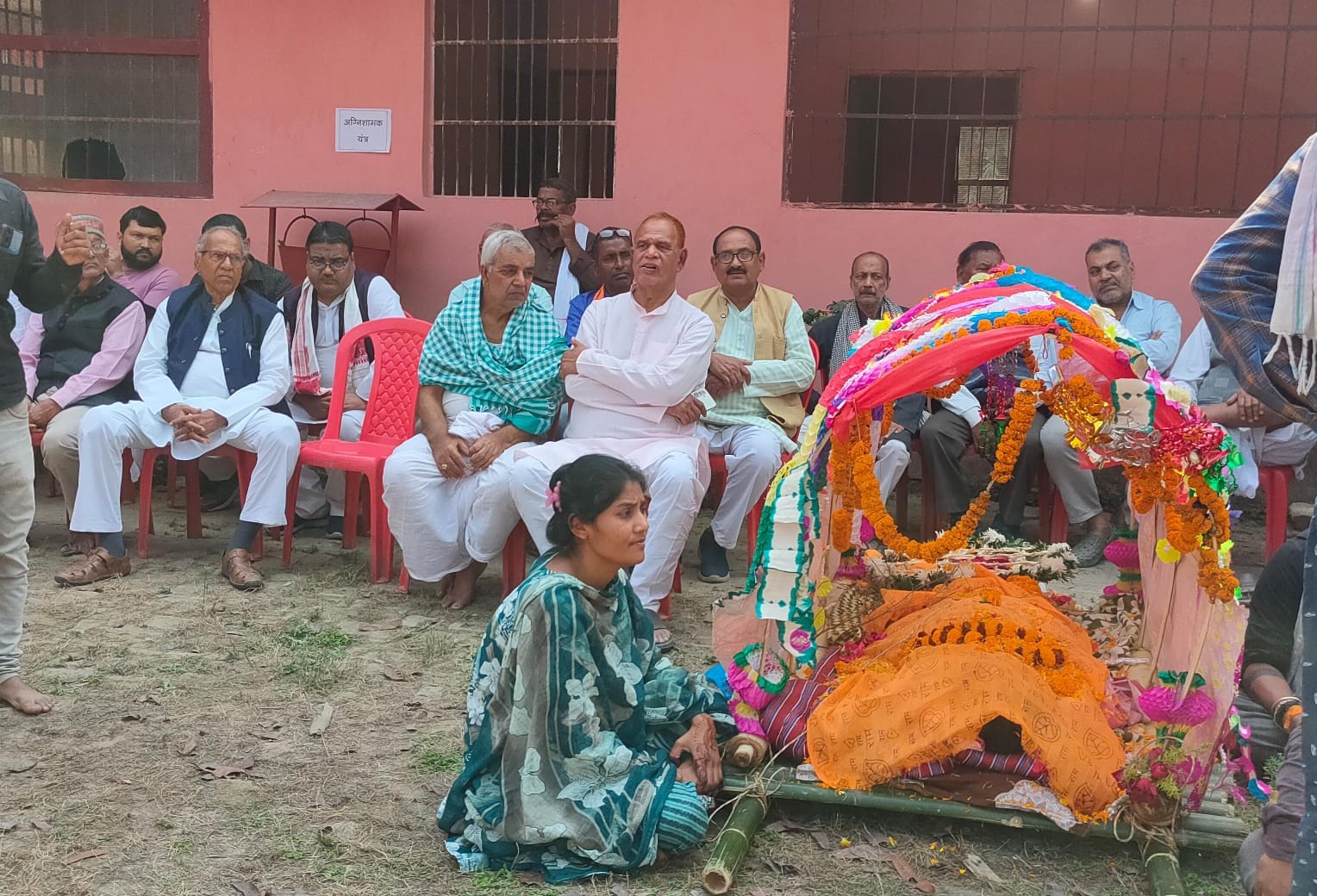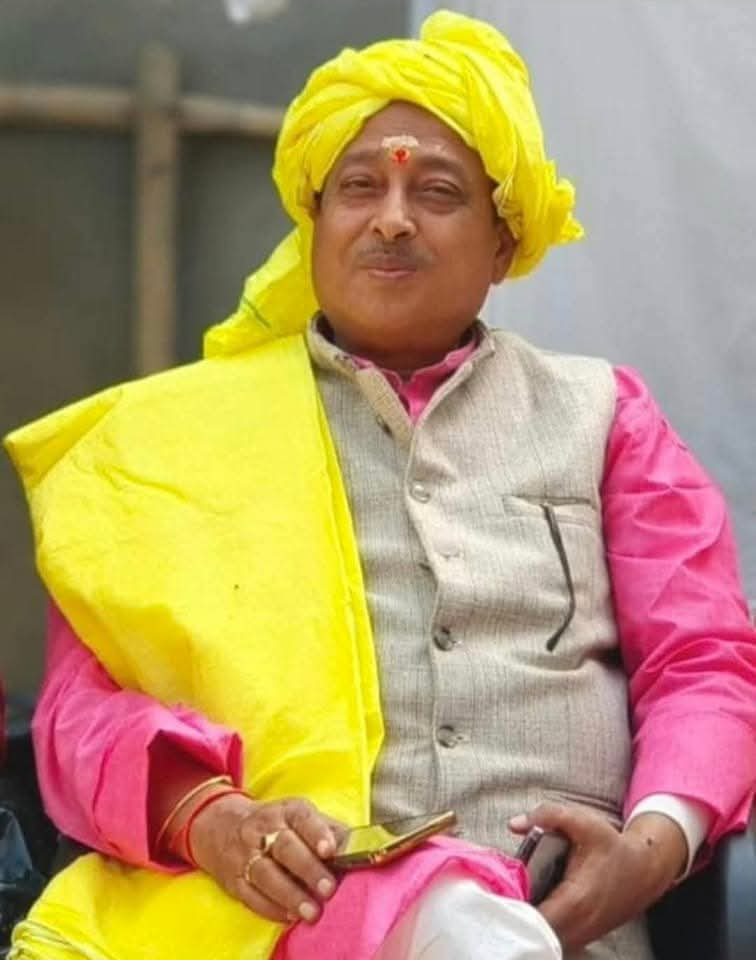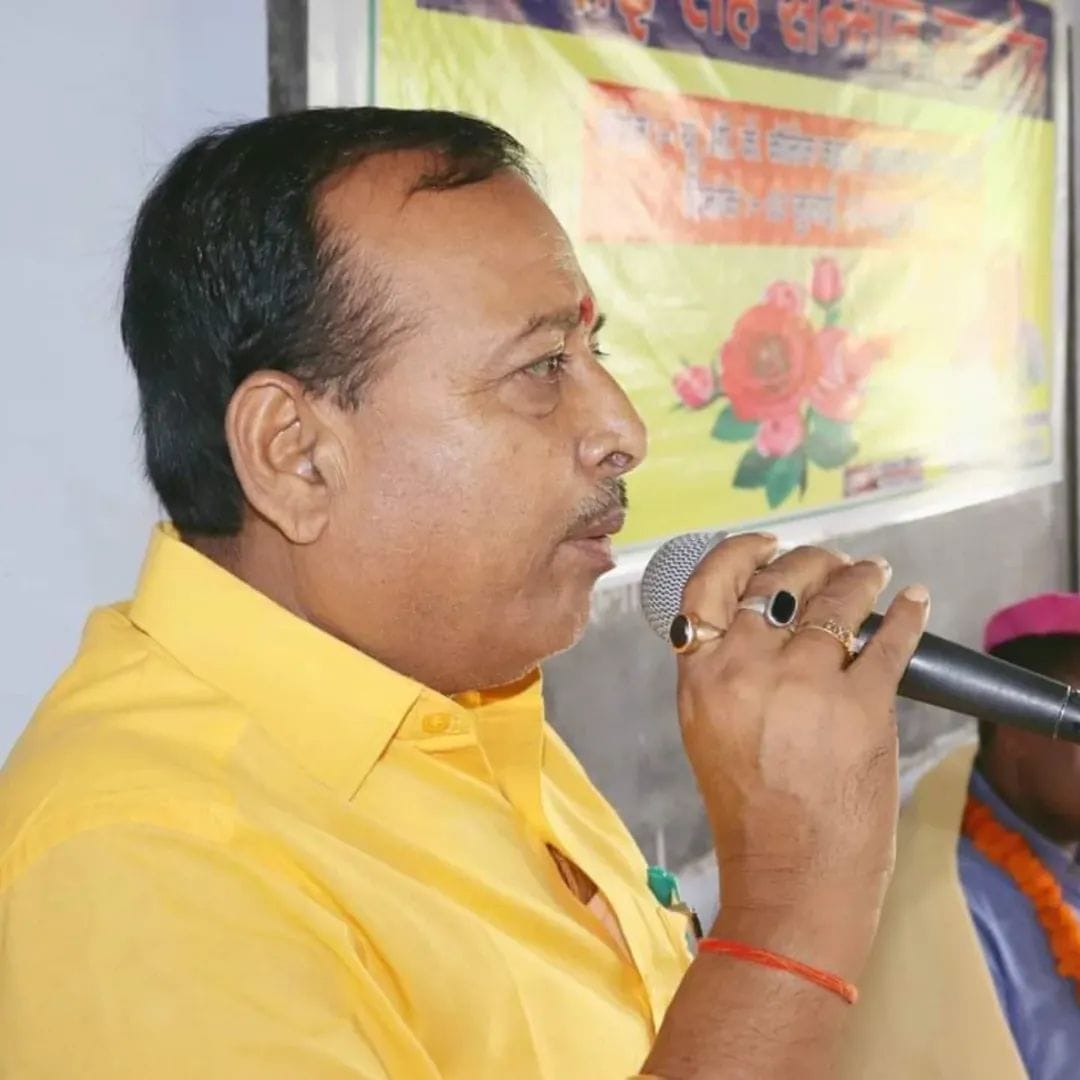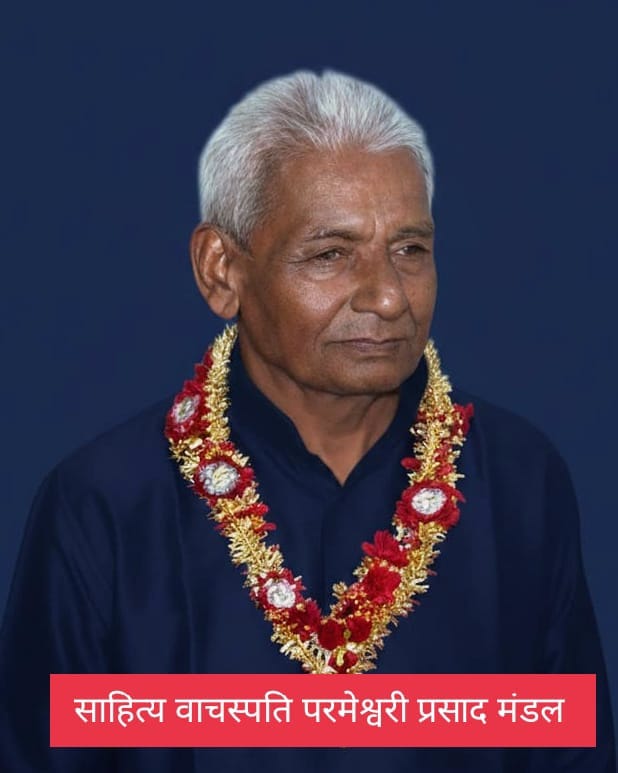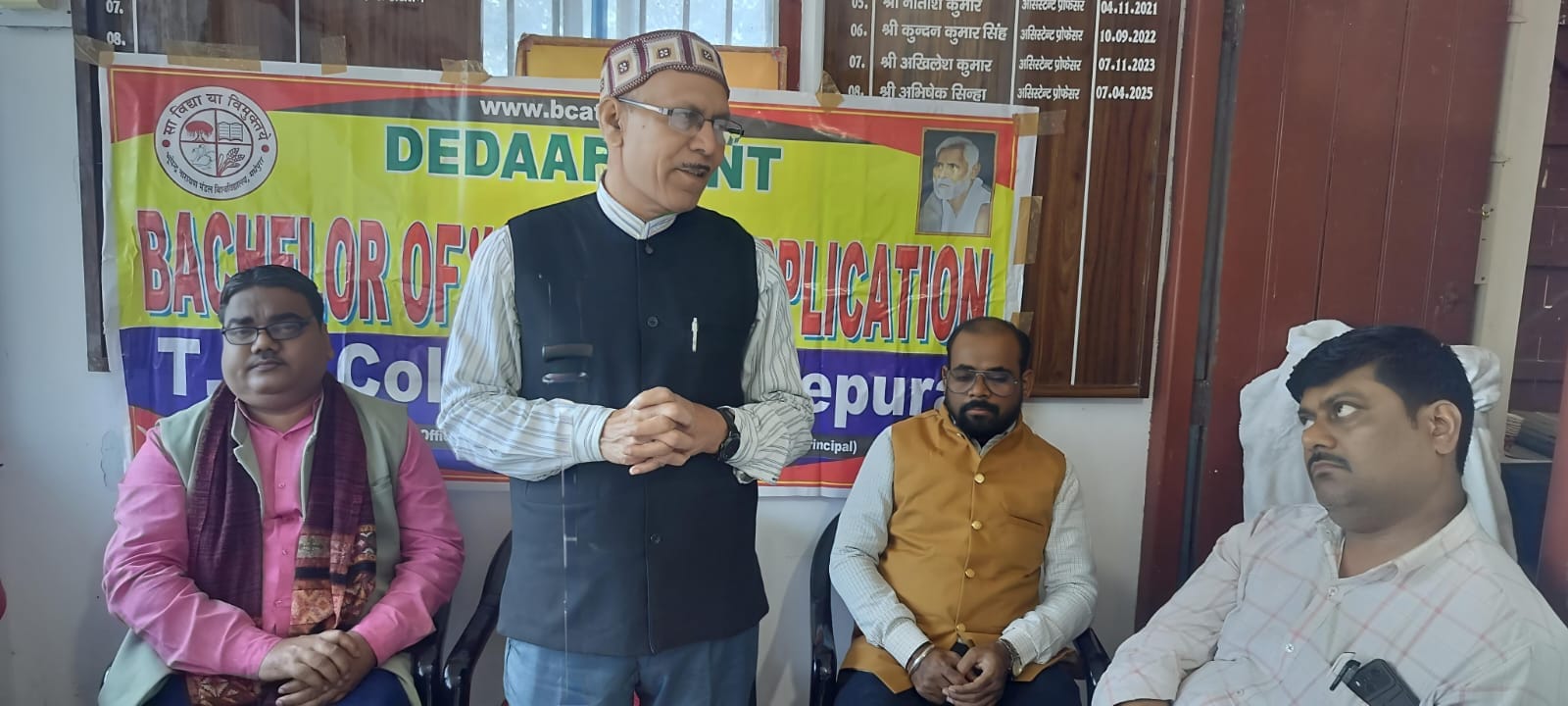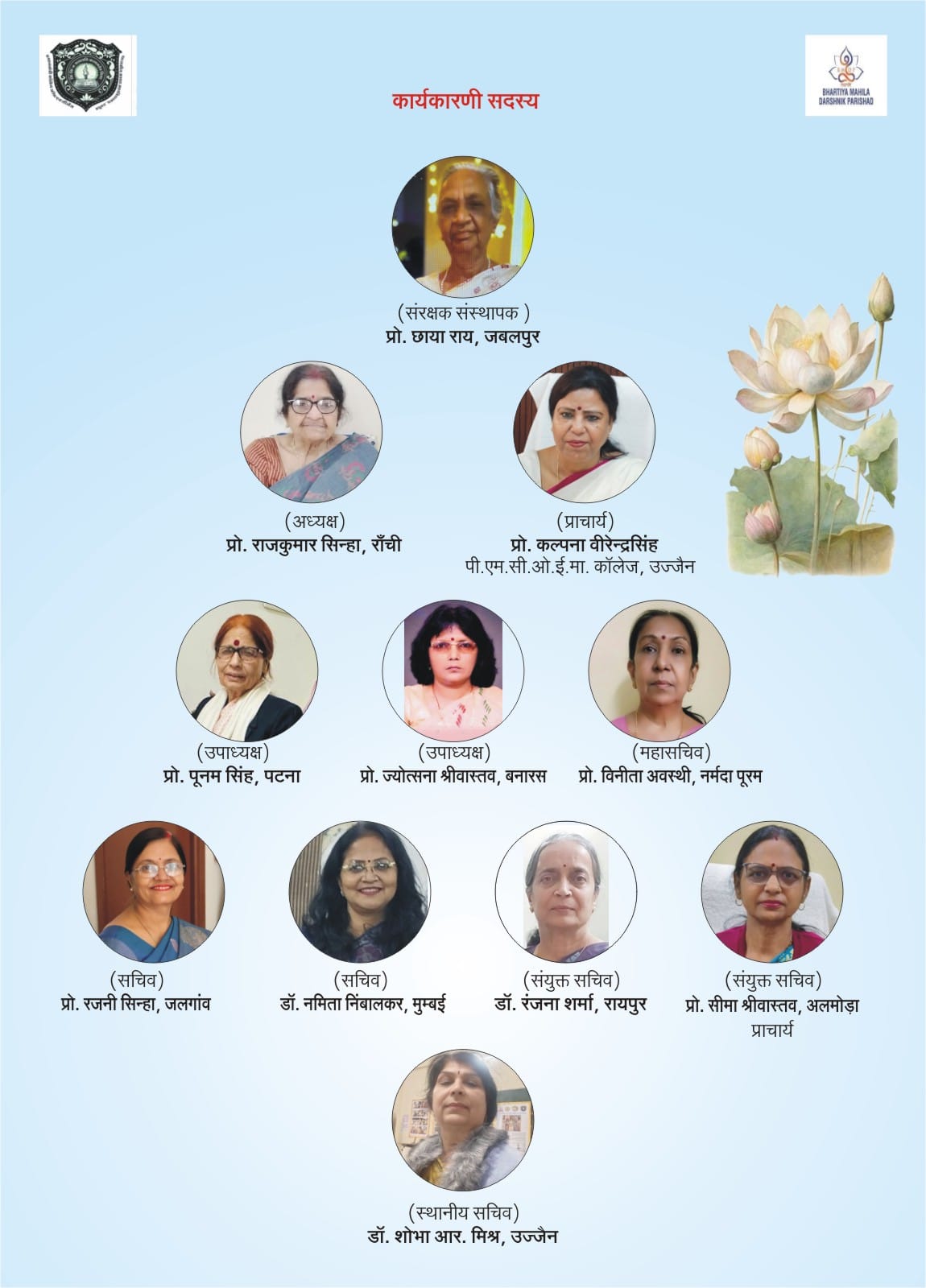*भारतीय ज्ञान परंपरा को वैश्विक विमर्श में एक स्वतंत्र विषय के रूप में स्थापित करने की आवश्यकता : प्रोफेसर सिद्धार्थ सिंह*
दिनांक: 17 अप्रैल 2025:
नव नालंदा महाविहार, नालंदा के माननीय कुलपति प्रोफेसर सिद्धार्थ सिंह ने आज भारत के ज्ञान परंपरा और भारतीय भाषाएं विषयक द्वि दिवसीय राष्ट्रीय संगोष्ठी के समापन समारोह में अपने अध्यक्ष उद्बोधन में कहा कि भारतीय दर्शन, शास्त्र, लोक परंपराएं, संगीत, रंगमंच, शिल्प और आदिवासी सांस्कृतिक अभिव्यक्तियाँ – ये सभी मिलकर उस व्यापक “भारतीय ज्ञान परंपरा” को परिभाषित करते हैं, जिसे एक स्वतंत्र, समग्र और संरचित अनुशासन के रूप में स्थापित करना समय की आवश्यकता है।
व्याख्यान में उन्होंने बताया कि किसी भी प्रकार के विवाद और संघर्ष को समझने के लिए कॉनफ्लिक्ट मैपिंग की पद्धति अत्यंत उपयोगी है, जिसमें “ट्रैक्टेबल” और “इंट्रैक्टेबल” जैसे विविध प्रकारों का उल्लेख किया गया। उदाहरण के रूप में उन्होंने इस्राइल-फिलिस्तीन विवाद का हवाला दिया जो ऐतिहासिक, धार्मिक और भू-राजनीतिक दृष्टिकोण से अत्यंत जटिल है।
उन्होंने संयुक्त राष्ट्र के ‘एजेंडा फॉर पीस’ में वर्णित तीन प्रमुख अवधारणाओं – पीसमेकिंग, पीसकीपिंग और पीसबिल्डिंग – का उल्लेख करते हुए इस बात पर ज़ोर दिया कि भारतीय दर्शन में संघर्ष के समाधान के लिए संवाद और समावेश की परंपरा रही है।
अपने उद्बोधन में कुलपति महोदय ने “अंधों और हाथी” की प्रसिद्ध कथा का उल्लेख करते हुए बताया कि कैसे विभिन्न दार्शनिक परंपराएँ एक ही सत्य के अंश को अपनी दृष्टि से देखती हैं। उन्होंने बौद्ध, जैन और सूफ़ी परंपराओं में इस दृष्टांत के विभिन्न संस्करणों का हवाला देते हुए कहा कि भारतीय चिंतन परंपरा ने कभी एकमात्र सत्य के आग्रह पर बल नहीं दिया, बल्कि “अनेकांतवाद” और “स्यादवाद” जैसी अवधारणाओं के माध्यम से बहुलता को स्वीकार किया है।
कुलपति महोदय ने कहा कि भारतीय संस्कृति की छाप विश्व के कोने-कोने में देखी जा सकती है – चाहे वह जापान में हिन्दू देवी- देवताओं की उपस्थिति हो, अज़रबैजान की राजधानी बाकू का प्राचीन हिंदू मंदिर हो या हंगरी के प्राचीन शहरों में बौद्ध प्रभाव के दावे। उन्होंने यह भी बताया कि भारतीय शब्द और ध्वनियाँ जर्मन और जापानी भाषाओं तक में परिलक्षित होती हैं।
अपने समापन भाषण में उन्होंने आह्वान किया कि केवल सांस्कृतिक गौरवगान से आगे बढ़कर अब आवश्यकता है कि इस समृद्ध ज्ञान परंपरा को अकादमिक और वैश्विक स्तर पर एक संगठित अनुशासन के रूप में पुनः प्रतिष्ठित किया जाए।
*Need to establish Indian knowledge tradition as an independent subject in global discourse: Professor Siddharth Singh*
Date: 17 April 2025:
Professor Siddharth Singh, Honorable Vice Chancellor of Nava Nalanda Mahavihara, Nalanda, in his presidential address at the closing ceremony of the two-day National Seminar on India’s Knowledge Tradition and Indian Languages today, said that Indian philosophy, scriptures, folk traditions, music, theater, crafts and tribal cultural expressions – all together define the broad “Indian knowledge tradition”, which is the need of the hour to establish as an independent, holistic and structured discipline.
In the lecture, he explained that the method of conflict mapping is very useful for understanding any kind of dispute and conflict, mentioning various types like “tractable” and “intractable”. As an example, he cited the Israel-Palestine dispute which is extremely complex from historical, religious and geopolitical perspectives.
He referred to the three key concepts mentioned in the UN Agenda for Peace – peacemaking, peacekeeping and peacebuilding – and emphasised that Indian philosophy has a tradition of dialogue and inclusion for conflict resolution.
In his address, the Vice Chancellor referred to the famous fable of the “blind men and the elephant” to explain how different philosophical traditions view the same truth in their own way. He cited different versions of this parable in Buddhist, Jain and Sufi traditions to say that the Indian tradition of thought has never insisted on a single truth, but has accepted multiplicity through concepts like “anekantavada” and “syadvada”.
The Vice Chancellor said that the imprint of Indian culture can be seen in every corner of the world – whether it is the presence of Hindu deities in Japan, the ancient Hindu temple in Baku, the capital of Azerbaijan, or the claims of Buddhist influence in the ancient cities of Hungary. He also pointed out that Indian words and sounds are reflected even in German and Japanese languages.
In his concluding address, he called for going beyond mere cultural glorification to re-establish this rich knowledge tradition as an organised discipline at the academic and global level.
President of India
PMO India
Ministry of Culture, Government of India
Gajendra Singh Shekhawat
Ministry of External Affairs, Government of India
Ministry of Education
Ministry of Home Affairs, Government of India
Ministry of Tourism, Government of India
Indian Council For Cultural Relations
Indian Council of Historical Research भारतीय इतिहास अनुसंधान परिषद्
Sushma Swaraj Institute of Foreign Service
ICCR Delhi/NCR
ICCR Patna
Banaras Hindu University – Varanasi
Mahatma Gandhi International Hindi University
Sanchi University of Buddhist-Indic Studies
Nalanda University, Rajgir
Nalanda Open University
University of Delhi
University Grants Commission
Indian Council of Philosophical Research, New Delhi
DDNEWS24x7
BBC News हिन्दी
BBC News
News18 India
Press Trust of India – PTI
Press Information Bureau – PIB, Government of India
Asian News International (ANI)
Danik Bhaskar
Indian Culture
Danik Jagran
Indian Institute of Heritage
Magadh University,Bodhgaya
Patliputra University
Lalit Narayan Mithila University
IIM Bodh Gaya
News24
Nalanda News
Bihar government
भारतीय भाषा मंच


